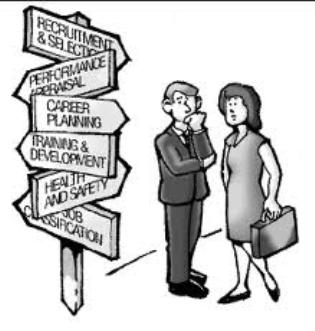15 Ways Recruiters Contribute to Applicants’ Failure at Interviews (I)

with

Moruf Kolawole Nasir
(Experienced HR professional)
nmkolawole@gmail.com; info@jarushub.com
It is common knowledge that in all assessments/screening of the best candidates don’t necessarily emerge as the best using the outcome/result of whatever screening method is being used, hence the saying – examination is not always the best way to identify the best student in class. Same thing is applicable in recruitment. It is for this reason that recruiters try as much as possible using so many assessment methods to get the best out of the lots of candidates at their disposal, even when it is crystal clear to them that identifying the best suited candidate for any job is NOT an 100% assurance thing.
Factors contributing to best suited candidates not emerging first at interview could be categorized into three- the candidates themselves; the circumstances/ environment; and the INTERVIEWR’S BIAS. This article centers on the role of the interviewer in candidates inability to emerge best when they, ideally, are the best suited for the job, i.e. INTERVIEWER’S BIAS. The Biases are as follows:
1. THE AVERAGE /CENTRAL TENDENCY BIAS: This occurs/arises when the interviewer finds it difficult to decide which candidate is the best suited for the job and as such rates them all about the same. In this instance, the interviewer ends up doing ‘mini mini mani mo…’ to pick one of them, which is may not be the best of them.
2. THE CONTRAST BIAS: This is a bit common among interviewers. It occurs when the interviewer(s) compares candidates to each other or compares all candidates to a single candidate. For instance, let’s say the first candidate is weak, others after such a candidate may be rated higher than they really are due to comparing them to the first weak candidate.
3. THE HALLO EFFECT : This happens when the interviewer evaluates a candidates positively based on a single characteristic. For instance, a candidate’s self confident attitude may blur the interviewer’s sense of adequately identifying the candidate’s lack of experience in certain areas.
4. THE HORN EFFECT / HARSHNESS BIAS: This bias is the opposite of the Hallo effect bias, here a candidate is evaluated negatively based on a single characteristic of his/hers
5. THE FIRST IMPRESSION BIAS: This may either be to the advantage or disadvantage of the candidate. If a candidate is not too lucky to gather himself at the first few minutes of the interview, and as such is very nervous or stutters, such a candidate could be seen as less qualified, even if such a candidate puts himself together during the remaining part of the interview, the impression has already been formed.
6. THE CULTURAL NOISE BIAS: This happens when the interviewer let out some pointers unknowingly, e.g. if the interviewer stresses a particular requirement for the job-say team player; and the candidate leverage on that to tell him what he wants to hear to land him/her the job. Even if such a candidate is a loner the chances of him claiming to be a team player is very high, and as such he tells the interviewer what he/she wants to hear.
7. THE GUT FEELING BIAS: This bias occurs when the interviewer relies on an intuitive feeling that a candidate is a good or bad fit for a particular job, without or before looking at the candidate’s profile whether it meets the job specifications or not. I have had cases where a supposed interviewer walked past applicants and said to me, “Kola that lady/guy in so and so top what is his/her name, I think (s)he will be a good candidate for the job”. All that was required of such candidates were few impressive answers and the jobs became theirs.
To be continued next week…
DON’T FORGET TO CHECK OUT JARUSHUB PREMIUM CAREER SERVICES
[GOT AN INTERVIEW? ENROL FOR JARUSHUB INTERVIEW PREPARATION SERVICE]
Established in March 2013, JarusHub is a Nigerian information hub with focus on career and management. It is rated Nigeria's most authoritative destination for online career resources. It parades an array of Nigerian professionals who share their career experiences with a view to bridging career information gap and mentoring a generation to success. Whether you're a student, a recent graduate or an established professional, or even an executive, you will always find something to learn on JarusHub. All enquiries to jarushub@gmail.com or 0808 540 4500. Facebook: www.facebook.com/jarushub; Twitter: @jarushub or @mcjarus.
Path to Big 4: Stream 11
April 4, 20245 Best Useful Applications Of AI in Modern World
November 17, 2023Career Q&A with Jarus: Oil & gas career, poor CGPA
September 17, 2023
1 comment
Let us have your say by leaving a comment belowCancel reply
Recommended For You
-
Career Advice on Investment Banking in Nigeria
January 10, 2018 -
DILEMMA OF A BANK CONTRACT STAFF
September 23, 2014 -
COMPANY REVIEW: MERISTEM SECURITIES
April 17, 2018










The site is very educative i like it